Roovice transforms wooden warehouse into bagel shop with see-through walls
Architects office Roovice has converted a former warehouse in Miura, Japan, into a bagel shop, replacing the existing walls with polycarbonate panels to make the building more transparent (+ slideshow).
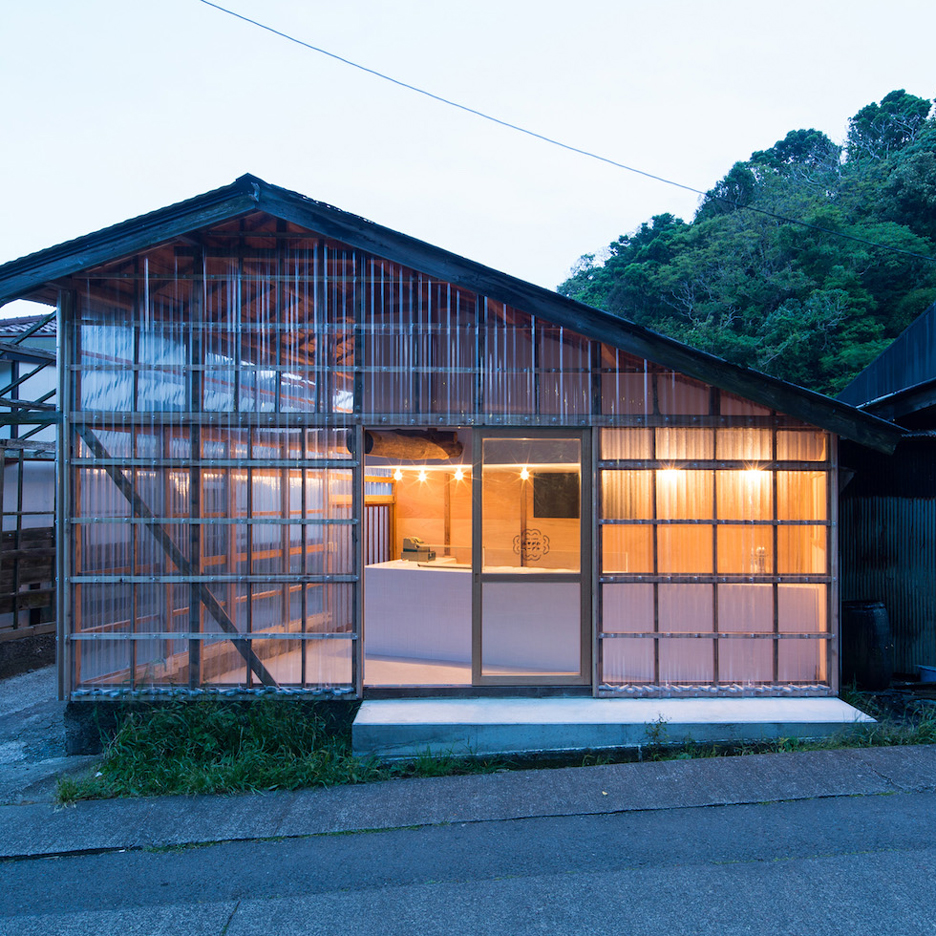
Once used to store fishing gear, the warehouse is located in the Miyagawa-cho, a seafront area at the very tip of the Miura Peninsula.
This area is threatened by Miura's declining population and the subsequent loss of tax revenues, so Yokohama-based Roovice has been exploring opportunities to repurpose existing buildings, to promote new enterprise.
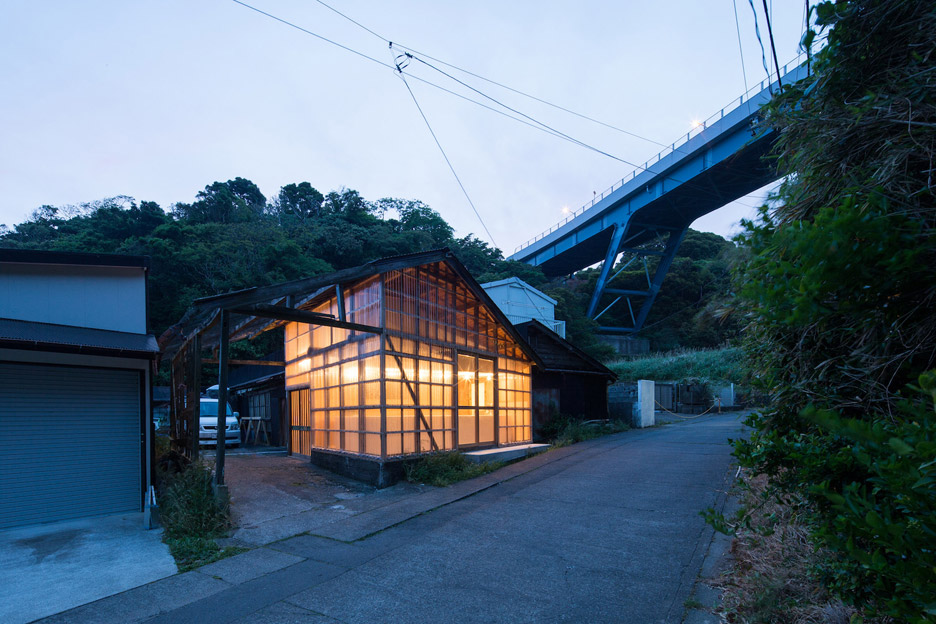
The studio specialises in renovation projects and recognised that the vacant warehouse could perform a new role in the community.
"After thinking how we can attract people into this small town, we decided to open a shop where we sell bagels using locally grown wheat, cream cheese and locally grown vegetables," said the architects.
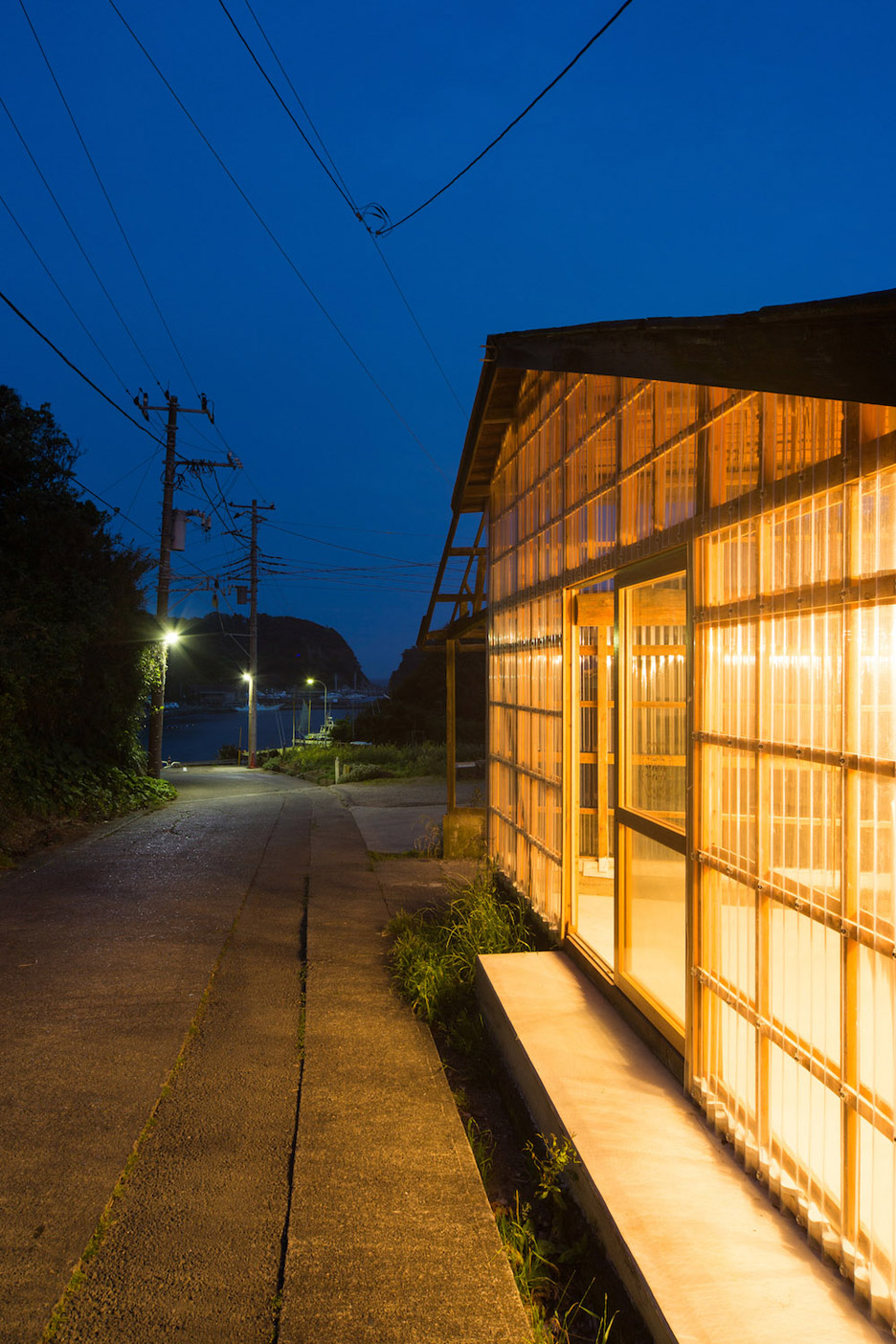
The building is situated in a valley overlooking a small bay which, despite being somewhere even locals don't tend to visit regularly, has plenty of natural characteristics that would appeal to visitors.
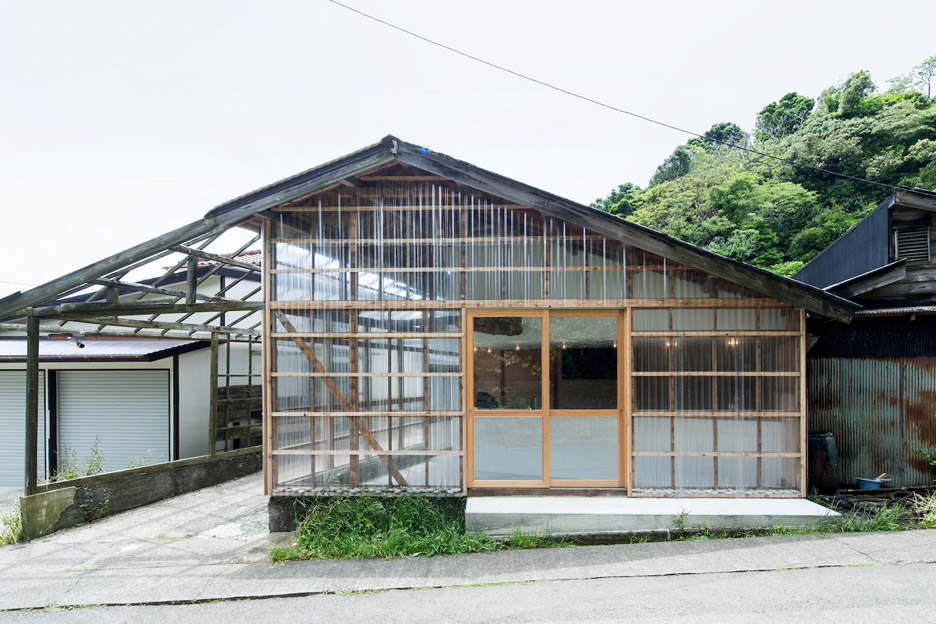
The renovation process focused on creating a sense of openness that helps to attract the attention of passers by and enhances the connection between the interior and the natural surroundings.
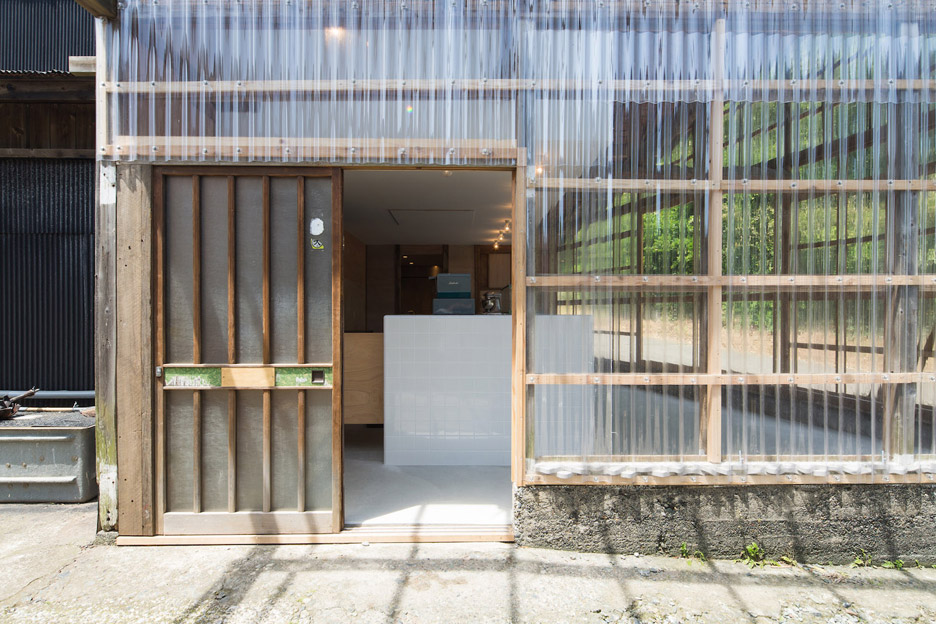
"Our concept was aimed at bringing surrounding green environment into the inside of the shop, opening to the outside and providing the information of local foods," the architects added.
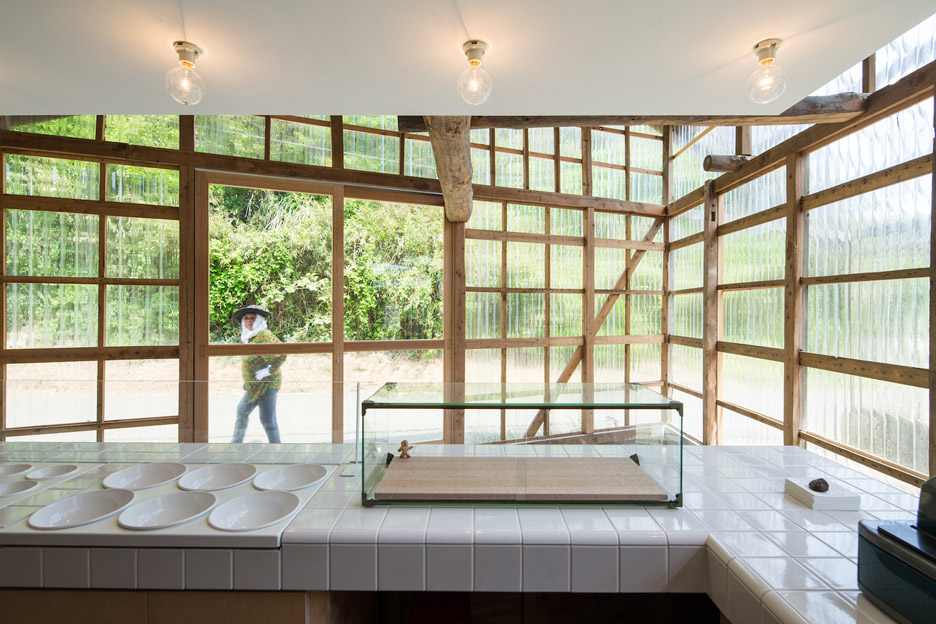
The building's original timber framework and traditional pitched roof were retained, but the walls were removed and replaced with clear sheets of ridged polycarbonate.
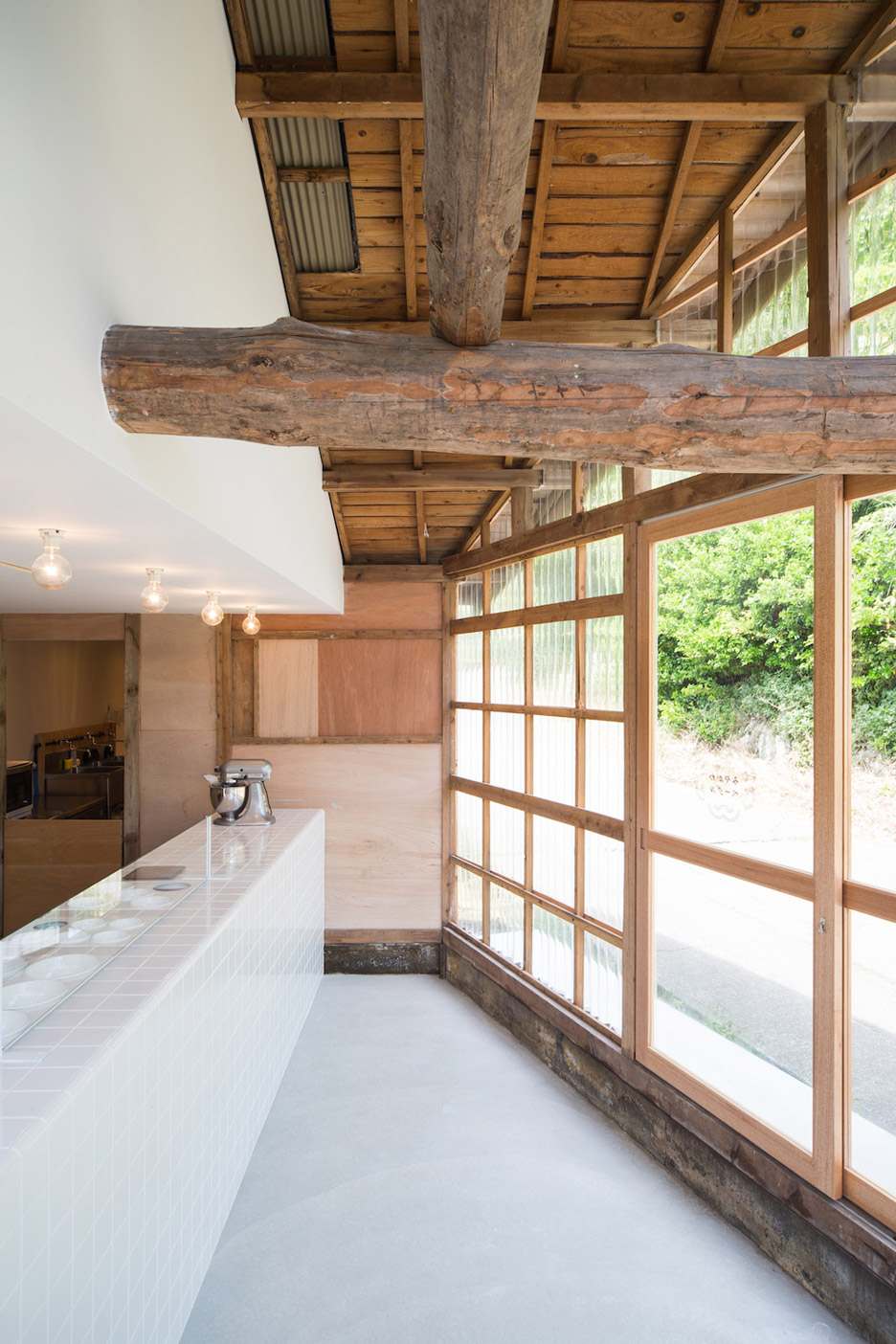
The transparent walls make it possible for visitors or people on the road to see what is happening inside the building. At night when the lights are on, the facades glow from within like a lantern.
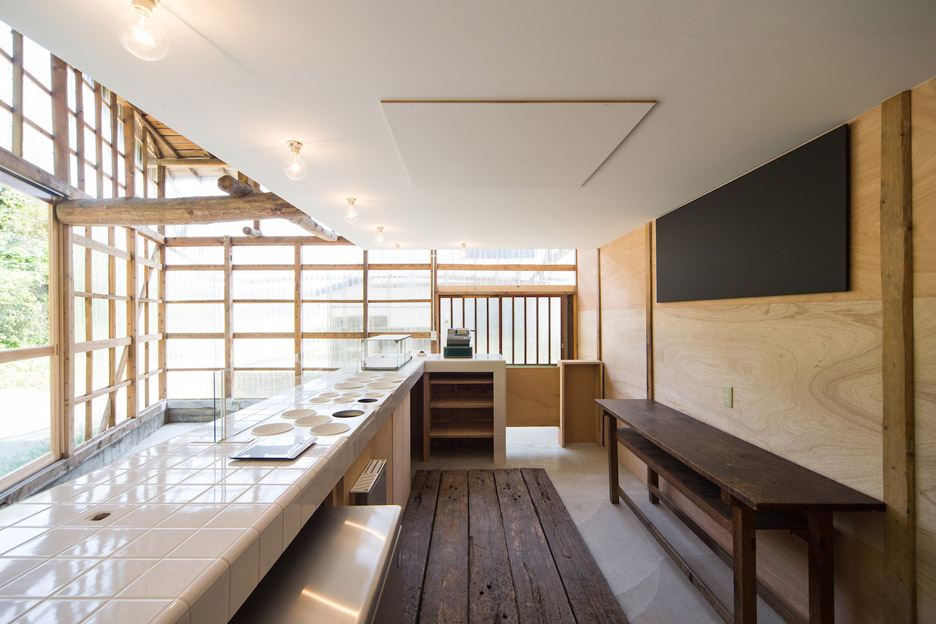
Inside, the shop features a counter of simple white ceramic tiles. Plywood surfaces made from lauan timber reference the warehouse's original materiality and provide a natural complement to the wooden frame.
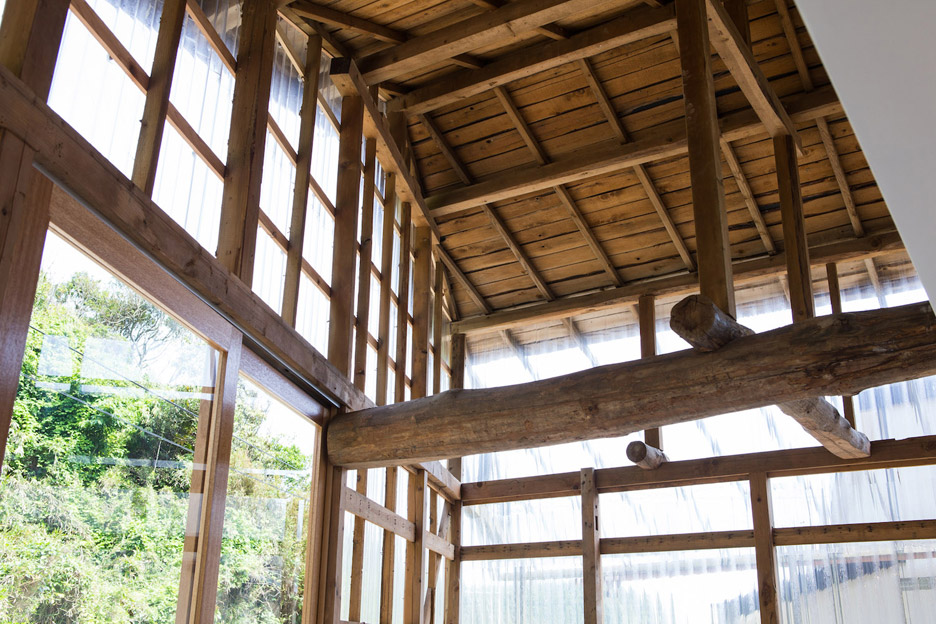
Freshly-baked bagels are presented in a glass vitrine on the counter, alongside bowls set into the surface that contain the fillings.
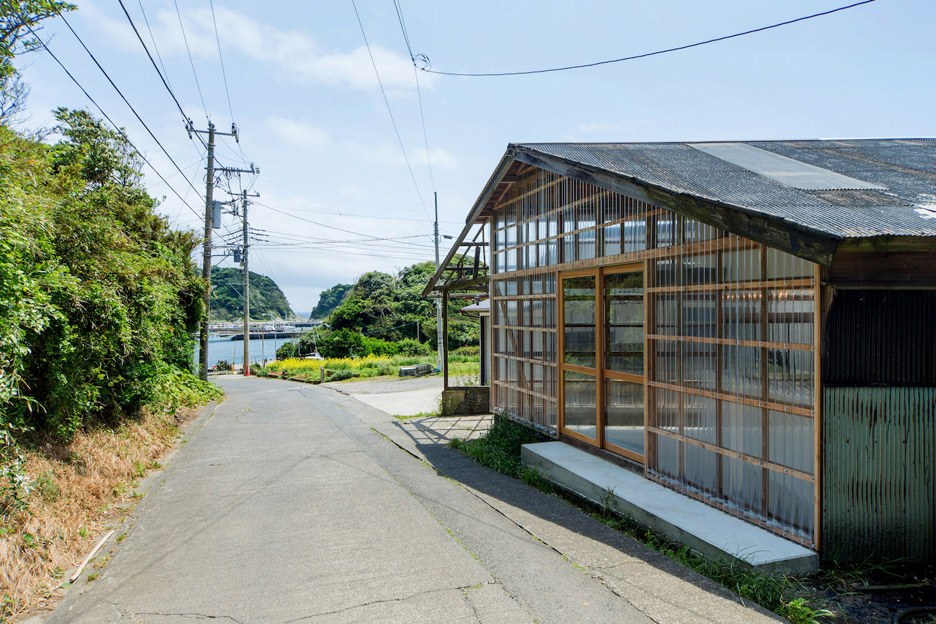
The translucency of polycarbonate is also used to allow daylight to enter a sunroom at one end of a timber-framed house in Japan, and to clad the greenhouse-like spaces of an arts centre in South Korea.
Photography is by Akira Nakamura.